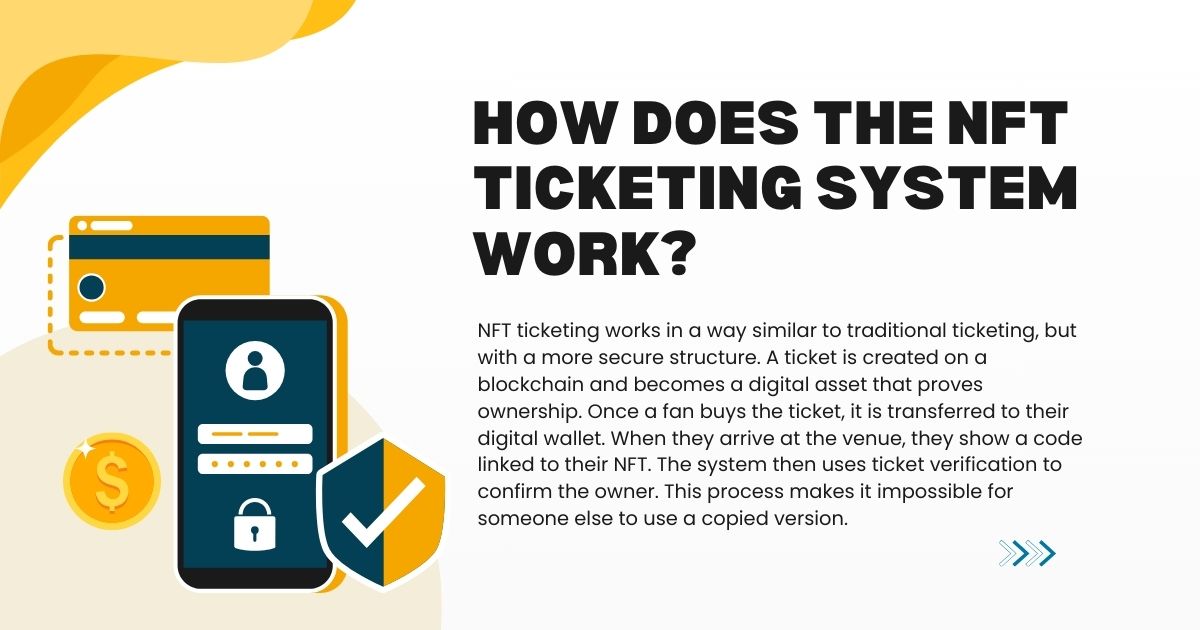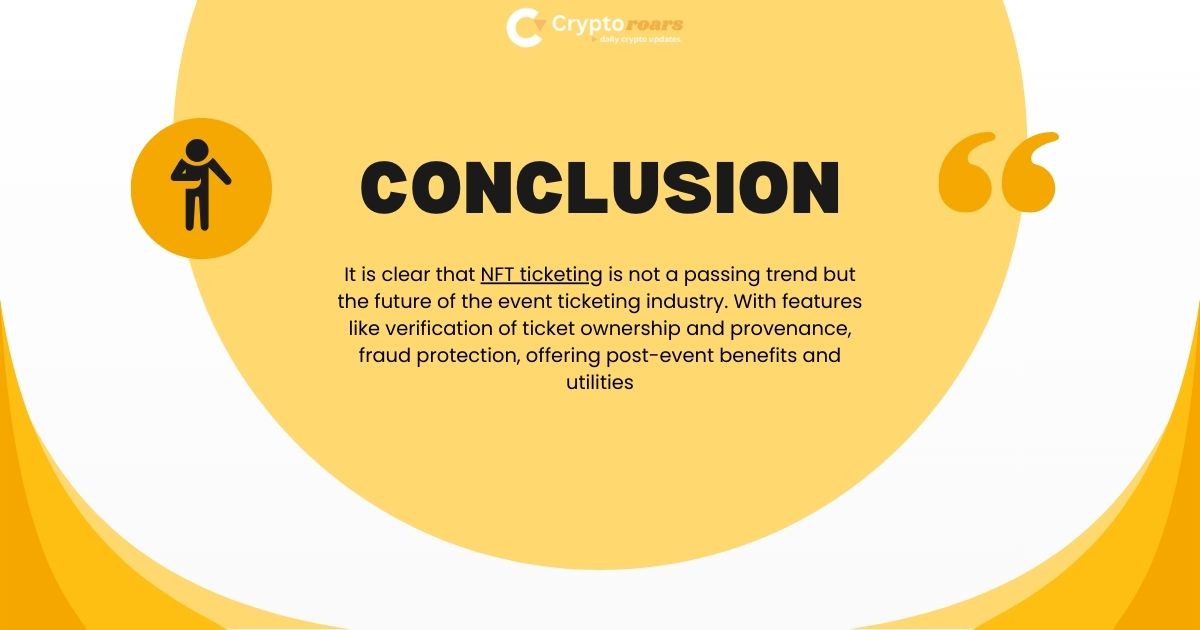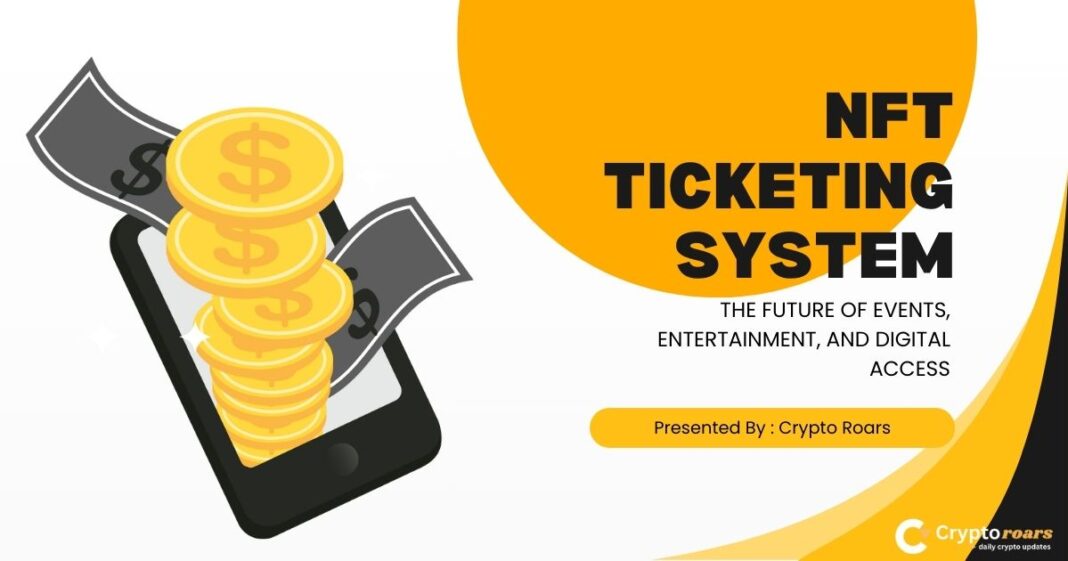Introduction to NFT Ticketing
The event industry in the United States is undergoing a major transformation, and at the center of this change is NFT ticketing. For decades, people have struggled with fake tickets, high resale prices, and poor event experiences. Traditional ticketing companies often fail to protect fans, leaving them exposed to scams and unfair practices. Now, NFT tickets are digital tickets stored on a blockchain, and they are designed to solve these long-standing issues. By using blockchain technology, ticketing becomes transparent, traceable, and far more reliable than the paper or e-ticket systems people have relied on in the past.
With verification of ticket ownership and provenance, event organizers gain a system that ensures tickets cannot be faked or duplicated. This makes providing additional security for event organizers much easier and more efficient. Fans also get stronger protection because each ticket functions as a digital asset that proves ownership. The growing demand for better and safer ticketing has pushed the event ticketing industry to look toward blockchain as the next big step. The rise of this technology in the USA has made it clear that adoption of NFT ticketing in the entertainment industry is not just a trend—it is becoming the future standard.
What Are NFT Tickets?
At their core, NFT tickets are digital tickets stored on a blockchain. This means every ticket is unique, cannot be copied, and is directly linked to the buyer through a distinct digital signature for each ticket. Unlike ordinary electronic tickets, which can be screenshotted or resold without permission, NFT tickets are linked to a blockchain wallet. This connection makes it impossible for fraudsters to trick event organizers or fans with fake passes.
An NFT ticket is a digital asset that proves ownership, giving fans direct control over their ticket. It can be traded in the resale market/ticket scalping environment, but with restrictions and safeguards built in by the organizer. They can include exclusive access, collectibles, or rewards after the event, ensuring fans get real value. This innovation allows organizers to create post-event utility and build customer loyalty programs that keep fans connected even after the concert, match, or festival is over.
How Does the NFT Ticketing System Work?

NFT ticketing works in a way similar to traditional ticketing, but with a more secure structure. A ticket is created on a blockchain and becomes a digital asset that proves ownership. Once a fan buys the ticket, it is transferred to their digital wallet. When they arrive at the venue, they show a code linked to their NFT. The system then uses ticket verification to confirm the owner. This process makes it impossible for someone else to use a copied version.
Fans gain entry with blockchain-verified tickets, and the blockchain automatically checks if the ticket is authentic. Through smart contracts, organizers can program resale rules, discounts, or even bonus rewards. The system allows token gating, where only specific ticket holders can enter private sections of the venue, VIP lounges, or even online streaming rooms. This extra layer of protection creates a secure and fraud-resistant ticketing process that cannot be matched by older methods.
Key Features of NFT Tickets That Make Them Unique
The most important strength of NFT ticketing is its built-in fraud protection. Every ticket is linked to a blockchain record, which means duplication is impossible. Fans and organizers no longer need to worry about preventing fake tickets and double-booking because the blockchain keeps all records accurate.
Another standout feature is offering post-event benefits and utilities. After the event, a ticket can become a collectible that includes limited-edition merchandise or exclusive digital rewards. In many cases, organizers use tickets as virtual assets that give ongoing benefits. These features help in enhancing customer loyalty and engagement, turning fans into long-term supporters instead of one-time buyers.
Why NFT Ticketing is Better Than Traditional Ticketing
Traditional ticketing systems are full of problems, including fraud, scalping, and a lack of fairness in pricing. Tickets can be resold at ten times the original price, leaving fans frustrated and organizers without control. With NFT ticketing, these issues are addressed. Every NFT ticket is tied to the blockchain, providing a transparent and cost-effective ticketing solution for both fans and organizers.
The system also brings transparent ticketing to the forefront. Fans can see exactly how much a ticket was first sold for and track resale prices. By solving problems like counterfeiting and scalping, blockchain-based tickets restore trust in the event ticketing industry. This trust makes live events more appealing, encouraging fans to attend concerts, sports events, and festivals without fear of being cheated.
Benefits of NFT Ticketing for Event Organizers
For event organizers, NFT ticketing opens the door to many new opportunities. The technology introduces new revenue streams for event organizers, allowing them to set resale conditions or take a percentage from every transaction. Unlike paper tickets, which lose value after the event, NFT tickets can keep generating income.
Organizers also benefit from empowering creators and small businesses. Independent artists or small event managers no longer need to rely on giant ticketing companies. With blockchain systems, they can sell directly to fans, keep more profit, and reduce third-party costs. This model creates a transparent and cost-effective ticketing solution while giving organizers more control over their event’s success.
Benefits of NFT Ticketing for Ticket Holders
Fans also gain major advantages when using NFT ticketing. First, they receive a digital asset that proves ownership, which means they are safe from fake tickets. They no longer risk being turned away at the gate because of a scam. Second, ticket holders can benefit from resale options that are safe and controlled, ensuring fair pricing and fraud protection.
Another big advantage is the post-event utility of these tickets. A concert ticket might transform into a collectible NFT that unlocks a backstage video, future discounts, or even customer loyalty programs. These benefits create stronger connections between fans and organizers, leading to enhanced customer loyalty and engagement long after the event has ended.
How NFT Ticketing Solves Fraud and Scalping Problems
The traditional resale market/ticket scalping has always been a headache for both fans and organizers. Scalpers buy tickets in bulk and resell them at unfair prices. NFT ticketing eliminates this problem by using smart contracts to control resale conditions. Organizers can limit prices, set resale timeframes, and ensure every transaction is secure.
In addition, counterfeit prevention is built into the system. Since each ticket has a distinct digital signature for each ticket, duplication is impossible. This secure and fraud-resistant ticketing process ensures that only genuine buyers enter events. The result is a fairer system where fans and organizers are both protected from exploitation.
Real-World Examples of NFT Ticketing in Action
Adoption of NFT ticketing in the entertainment industry is already happening. For example, Coachella launched NFT passes that not only gave entry but also offered lifetime benefits for future events. These NFTs became collectibles, offering long-term virtual assets to fans. Similarly, sports organizations in the USA, including the NBA, are exploring NFT ticketing to give fans digital souvenirs that can be resold or traded.
Another example is the European company GUTS Tickets, which has been a pioneer in blockchain ticketing. Their system prevents scalping and fake tickets, and they have already partnered with music festivals. These case studies show that the world is moving toward NFT ticketing, and the USA is expected to lead in this adoption over the next decade.
Top Companies Developing NFT Ticketing Solutions
Several companies are already shaping the event ticketing industry with NFT ticketing technology. YellowHeart, based in the USA, has worked with major music artists to release blockchain-based tickets. Their platform ensures providing additional security for event organizers while giving fans collectibles. SeatlabNFT is another growing company that adds unique post-event benefits.
Other players include NFT TiX, Defy, and Wicket, each focusing on different segments of the resale market/ticket scalping, and fraud prevention. Together, these companies are building the foundation for a global ticketing transformation. The fact that multiple startups are entering this field shows that adoption of NFT ticketing in the entertainment industry is no longer an idea but a reality.
The Role of Blockchain in NFT Ticketing
Blockchain is the heart of NFT ticketing because it enables ticket verification and fraud protection. Every transaction is stored in a public ledger, ensuring a transparent ticketing experience. This reduces the risks of fraud and makes transactions secure for fans and organizers alike.
Different blockchains play different roles in this system. Ethereum offers robust infrastructure but can be expensive. Polygon and Solana provide cheaper, faster alternatives. The USA market has started experimenting with these options to make NFT ticketing more accessible and affordable for mass adoption.
Challenges and Limitations of NFT Ticketing Adoption
Despite the benefits, NFT ticketing faces challenges. One of the biggest issues is awareness. Many fans in the USA are not familiar with digital wallets or digital ownership, which makes adoption slower. Event organizers also fear losing customers who are not comfortable with blockchain.
Another challenge is scalability. Large events may require millions of tickets, and blockchain systems need to handle this load without high costs. While smart contracts help reduce fraud, gas fees on certain blockchains can still be a barrier. These challenges must be solved for NFT ticketing to become the global standard.
Future Opportunities in NFT Ticketing and the Entertainment Industry
Looking ahead, NFT ticketing offers new opportunities that go beyond simple entry passes. Tickets could integrate with virtual assets in the metaverse, offering fans access to digital concerts or VIP spaces. Events in the USA may soon combine real-world entry with online experiences, blurring the line between physical and digital entertainment.
Another big opportunity lies in customer loyalty programs. With NFT ticketing, every event can connect fans to ongoing benefits like discounts, future access, or collectibles. This model strengthens long-term engagement and ensures that fans feel valued. Organizers can also create bundles that include both event access and limited edition merchandise, increasing revenue potential.
How NFT Ticketing Could Disrupt Sports, Music, and Festivals
Sports, music, and festivals are industries where NFT ticketing has the potential to cause the biggest disruption. In sports, fans could receive tickets that double as collectibles linked to a favorite match or player. In the music industry, NFTs can ensure fans buy tickets directly from artists, cutting out third-party resellers.
Festivals are also adopting this system to control large crowds and prevent problems like counterfeiting and scalping. By combining fraud protection with post-event utility, festivals can give fans both security and unforgettable experiences. This is how NFT ticketing is changing not just events but the very structure of the entertainment world.
Conclusion: Why NFT Ticketing is the Next Big Revolution

It is clear that NFT ticketing is not a passing trend but the future of the event ticketing industry. With features like verification of ticket ownership and provenance, fraud protection, offering post-event benefits and utilities, and enhancing customer loyalty and engagement, it solves problems that have existed for decades.
In the USA, where live entertainment is a huge part of culture, the adoption of NFT ticketing in the entertainment industry will create fairer, safer, and more enjoyable experiences. Fans will trust the system again, and organizers will enjoy new revenue opportunities. This shift is why NFT ticketing is the next big revolution, promising to reshape events, entertainment, and digital access for years to come.
For more information, keep visiting cryptoroars.com


